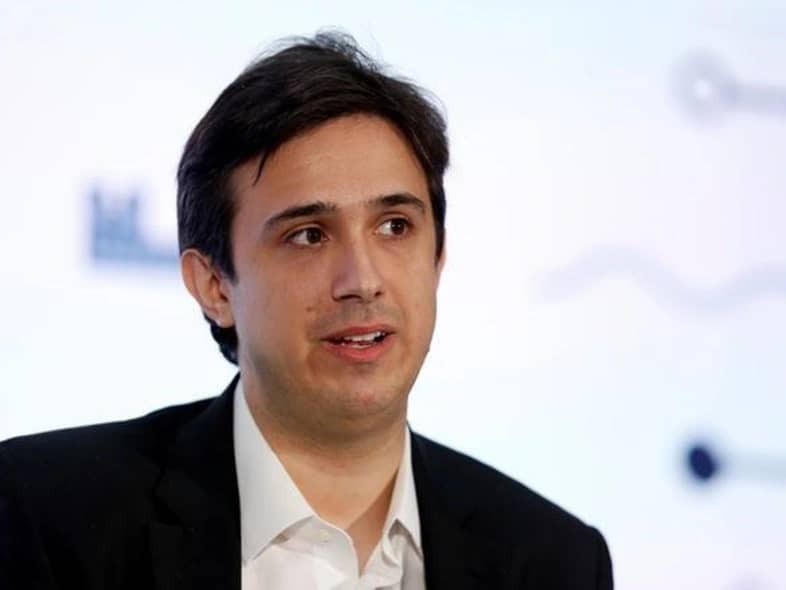Subscribe to wiki
Share wiki
Bookmark
Arthur Breitman
The Agent Tokenization Platform (ATP):Build autonomous agents with the Agent Development Kit (ADK)
0%
Arthur Breitman
Arthur Breitman is a computer scientist and entrepreneur best known as the co-founder of the Tezos blockchain along with his wife, Kathleen Breitman. [1]
Early Life
Arthur Breitman was born in France in 1985. He spent most of his childhood in France before moving to the United States for college. Breitman's interest in finance and programming began in his teenage years when he started programming his trading algorithms for stocks. At the age of 18, Arthur won a bronze medal in the International Olympiad in Informatics for France. [2][3]
Education
Arthur Breitman attended the École Polytechnique in France, where he received a degree in applied mathematics and computer science. He later attended the Courant Institute of Mathematical Sciences at New York University, where he earned a Ph.D. in computer science. [2]
Career
After finishing his Ph.D., he worked at Goldman Sachs as a quantitative analyst and later the vice president of Morgan Stanley. In 2014, he left Goldman Sachs to start his own company, Dynamic Ledger Solutions (DLS), with his wife Kathleen. [4]
Together, they began working on the idea of a blockchain that would use the proof-of-stake consensus in hopes of achieving a more secure, efficient, and adaptable platform than existing blockchains like Bitcoin and Ethereum. They called their new platform Tezos, and it quickly gained attention for its innovative approach to blockchain governance and its potential to overcome the scalability issues that plague other blockchain platforms. [2][5]
Before the taking fully lead of the Tezos Foundation, Arthur Breitman was also a research engineer for Google X and Waymo. [4]
In July 2017, Tezos conducted an initial coin offering (ICO) and raised $232 million in funding, making it one of the largest ICOs ever at the time. However, the project was plagued by controversies from the beginning, including disputes between the Breitmans and Johann Gevers, the head of the Tezos Foundation, over control of the project's funds and governance. [2][3][6]
Since then, Tezos has continued to develop its blockchain platform and has attracted a growing community of developers and supporters. Arthur and his wife remain active in the Tezos community, and they have continued to promote the platform's potential to transform industries ranging from finance to healthcare to government. [2]
Controversy
In April 2018, Arthur was fined $20,000 by the U.S. Financial Industry Regulatory Authority (FINRA) as a result of establishing Dynamic Ledger Solutions (DLS) in the United States without disclosing the information to his employers. [7]
In July 2017, the Tezos Foundation conducted one of the largest initial coin offerings (ICOs) at the time, raising $232 million in Bitcoin (BTC) and Ether (ETH). The contributions made by participants were labeled as "non-refundable donations." However, some contributors considered these donations to be investments, which raised concerns regarding the jurisdiction of the Securities and Exchange Commission (SEC). [7][8]
“For me and for a lot of people this is an investment. We are looking for a return,” - Kevin Zhou
The funds raised through the ICO were intended to finance the acquisition of Dynamic Ledger Solutions Inc. (DLS) and to provide the Breitmans, the founders of Tezos, with 8.5% of the ICO funds and 10% of the tokens if the Tezos blockchain operated successfully for at least three months. [7][8]
A significant dispute over control of the project ensued between the Breitmans and Johann Gevers, who held control over the assets managed by the Tezos Foundation, including the Breitmans' share. This disagreement resulted in delays in the development and deployment of Tezos. As a consequence, some investors filed lawsuits alleging fraud during the fundraising process and unauthorized sales of securities. Gevers was accused of pressuring the foundation council into signing a contract that would grant him a $1.5 million bonus. However, Gevers denied these allegations. [7][8]
“The victim of this thing is really the technology, because people spoke so much about Tezos,” - Arthur Breitman
"The weird thing is that some people try to portray this as: "he couldn't even raise 1 (million) now they raised 232 (million) which shows that there is something wrong with the ICO", No! there was just something wrong with he people who didn't want to give me $1million for what was clearly a really good project. - Arthur Breitman
In 2018, Gevers resigned from his position and received a payout of $400,000, and the foundation board underwent replacement. Tezos finally went live in September of that year, but legal challenges persisted. In 2020, the Tezos founders reached a settlement agreement with the plaintiffs involved in the lawsuits. The Tezos Foundation agreed to pay $25 million to resolve the legal disputes before federal courts could rule on whether the ICO constituted the sale of unregistered securities. [7][8]
See something wrong?
The Agent Tokenization Platform (ATP):Build autonomous agents with the Agent Development Kit (ADK)
